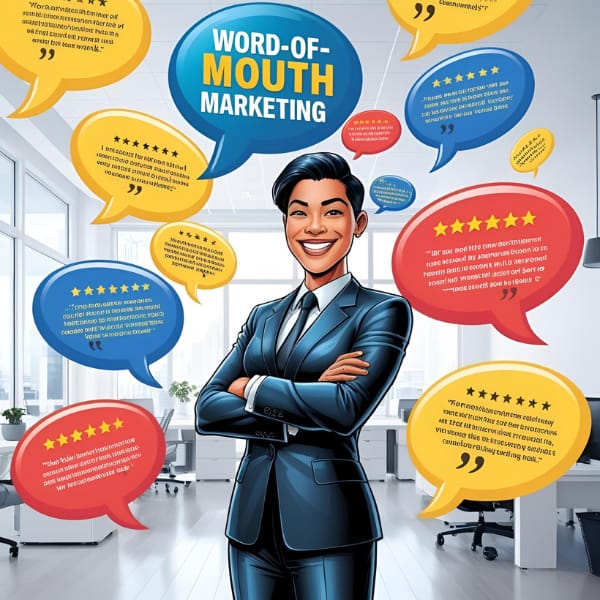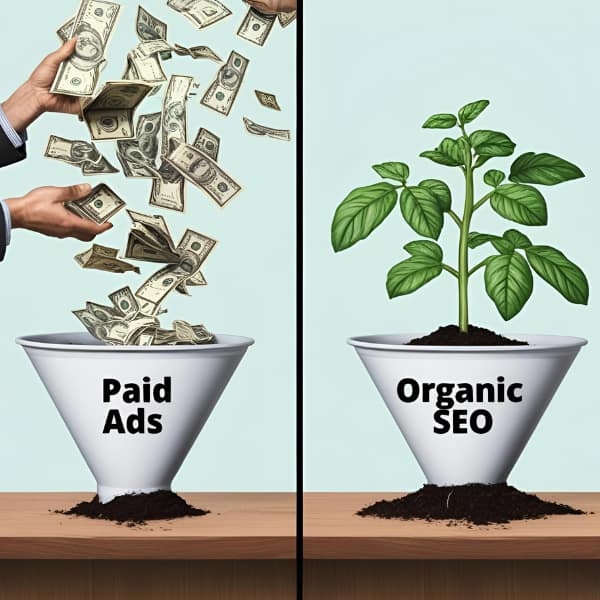Think You Don’t Need SEO? Let’s Challenge That Assumption
SEO is often marketed as an absolute must-have for every business. But is that true? Could some businesses don’t need to bother with rankings, keywords, and search engine visibility?
Well… sort of. In certain situations, SEO may not be an immediate priority, but even then, it often plays an indirect role in brand credibility, discoverability, and long-term business sustainability.
Let’s dive into five types of businesses that think they don’t need SEO—plus the hidden ways they still benefit from it.
The “Millionaire by Word of Mouth” Business

Some businesses thrive on word-of-mouth marketing alone. Perhaps they’ve built a solid reputation over decades, have a niche product with little competition, or cater to a highly exclusive clientele. If loyal customers keep coming back, why bother with SEO?
Here’s the catch—even word-of-mouth customers Google your business before making a decision. If someone hears about you from a friend, they’ll likely search your name to learn more. What happens if they can’t find your website or see outdated information? Worse yet, what if a competitor’s ad shows up instead?
💡 SEO Tip: Even if you don’t need SEO to attract new customers, you need it to control your branded search presence. A simple SEO strategy, like optimizing your Google Business Profile and ensuring your website ranks for your business name, can protect your brand’s credibility.
Secure your brand’s online presence with our tailored SEO strategies. Explore SEO Solutions.
The “Exclusively Underground” Business

Some businesses prefer to stay off the radar—luxury clubs, private consulting firms, or high-end service providers that operate on exclusivity. They don’t need walk-in customers or mass-market visibility, so SEO might seem pointless.
However, exclusivity doesn’t mean invisibility. Even private businesses need some level of controlled online presence—not for mass exposure, but for credibility and trust.
Imagine an ultra-exclusive investment firm. If a high-net-worth individual is invited to work with them, they’ll likely Google the firm before committing. If the business has no online presence, it raises red flags.
💡 SEO Tip: Instead of ranking for broad search terms, private businesses can use SEO strategically by:
- Optimizing invite-only landing pages to appear professional while keeping details hidden from public search.
- Using “noindex” meta tags for sensitive pages, allowing search engines to find basic business info while keeping core content private.
- Strengthening authority through PR and backlink strategies, ensuring they appear in reputable sources when prospects search for them.
Maintain your exclusivity while enhancing credibility with our discreet SEO services.
The “One-Time Viral Wonder”

Going viral is the dream. One well-placed tweet, TikTok trend, or influencer mention, and suddenly your website is exploding with visitors. With so much organic traffic already coming in, why bother with SEO?
Because virality is temporary. The internet has a short attention span, and today’s trending business can become tomorrow’s forgotten meme. What happens when the viral wave crashes?
💡 SEO Tip: If your business experiences a surge in traffic, leverage SEO to:
- Capture new visitors with optimized content that ranks even after the hype fades.
- Use internal linking strategies to keep viral visitors engaged and direct them to long-term resources.
- Turn viral topics into evergreen blog content so your site continues ranking beyond the initial spike.
Transform fleeting viral traffic into lasting engagement with our content optimization services.
The “Business That’s Retiring Next Year”

If a business is closing its doors or the owner is retiring, investing in long-term SEO might not seem a priority. After all, SEO takes time to show results—so why optimize a website that won’t be around?
However, even if you plan to sell your business, SEO can increase its value. A website that ranks well in search results is a business asset that potential buyers will find attractive. A domain with high organic traffic and authority is worth more than one with no search presence.
💡 SEO Tip: Before selling or closing, consider:
- Running an SEO audit to identify quick wins that improve rankings before listing the business.
- Strengthening high-traffic pages to boost site authority, making it more valuable for future buyers.
- Redirecting existing traffic to a new business venture ensures your audience isn’t lost entirely.
Enhance your business’s value with a comprehensive SEO audit.
The “I Advertise, So I Don’t Need SEO” Business

Paid advertising is great for instant visibility. Google Ads, Facebook Ads, and PPC campaigns deliver immediate results. If you’re getting traffic from ads, why invest in the slow process of SEO?
Because paid traffic stops the moment you stop paying. SEO, on the other hand, builds long-term, cost-efficient visibility that doesn’t require ongoing ad spend.
💡 SEO Tip: The best strategy is to combine SEO and SEM for sustained visibility and cost-efficiency:
- Use PPC data to inform SEO strategy, identifying high-converting keywords to target organically.
- Optimize landing pages for both paid & organic search, improving ad quality scores and reducing cost-per-click.
- Implement remarketing ads for organic visitors, turning SEO traffic into paying customers.
Achieve sustainable growth by integrating SEO with your advertising (SEM) efforts.
So… Do You Really Not Need SEO?
After reading this, you might realize that even businesses that “don’t need” SEO can still benefit from it in some way. Whether it’s for brand protection, credibility, or long-term traffic sustainability, search visibility plays a role in nearly every business model.
SEO isn’t about chasing rankings—it’s about ensuring your business is found, trusted, and chosen when it matters most.
SEO might not be for everyone—but if you’re rethinking its value, let’s explore how the right strategy can work for your business.